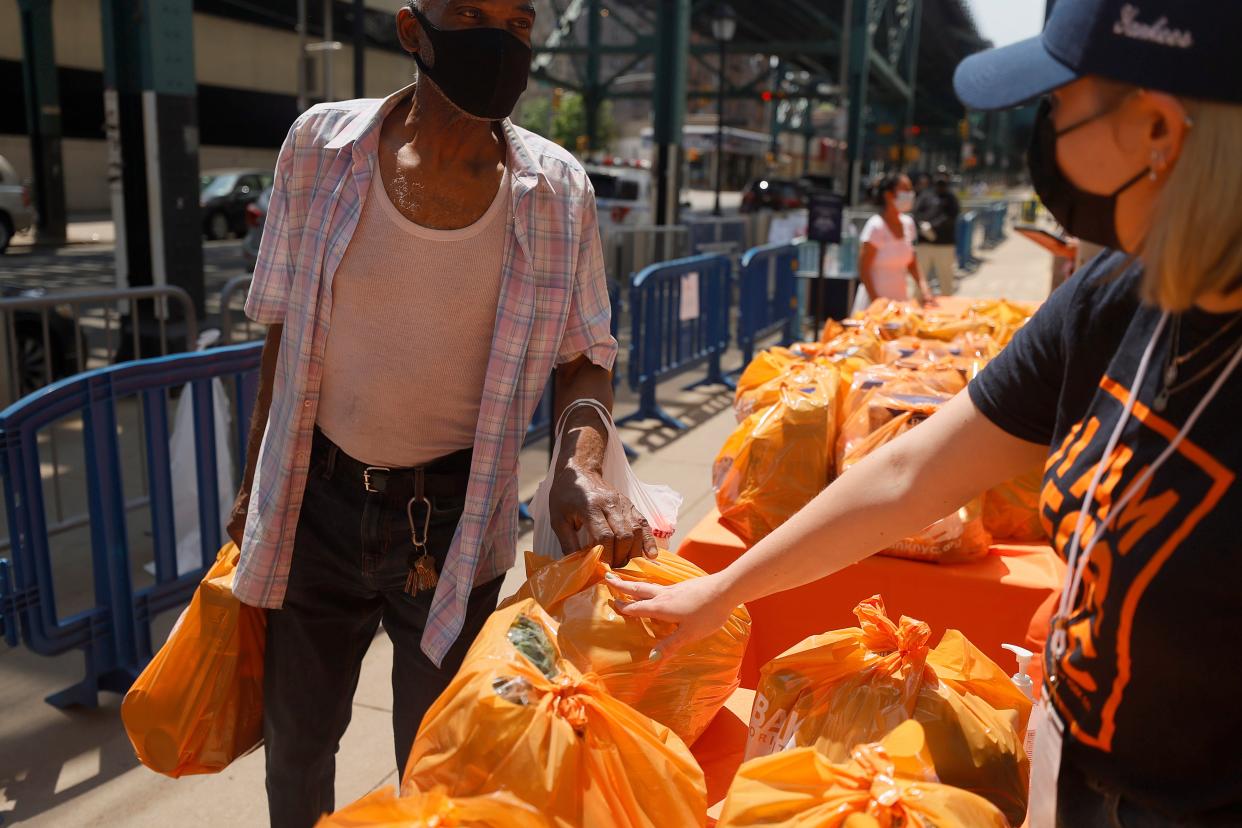Americans’ income fell and poverty rose in 2020 against background of pandemic, census shows

Coronavirus put a major dent in a roaring economy last year, according to new figures from the US Census Bureau, knocking household income down from a record high.
In 2019, the year before the pandemic shuttered numerous businesses and kept people inside, median household income was at its inflation-adjusted highest rate since 1967, but decreased by nearly 3 per cent during 2020, to $67,521.
The poverty rate also rose from a 60-year low, increasing by one per cent to 11.4 per cent, after it had been dropping for five straight years and had reached its lowest level since 1959. There were 37.2 million people in poverty last year, up from 33 million the year before.
The results are hardly shocking though, as the coronavirus put tens of millions of people out of work and disproportionately burdened marginalised communities both with the disease itself and its economic ramifications.
The new data, however, also captures how crucial federal stimulus spending was in keeping even more people out of economic ruin.
Stimulus cheques, as well as $600-per-week jobless benefits, helped move 11.7 million people out of poverty. The Supplemental Poverty Measure, a statistic which factors in government assistance programmes, declined by 2.6 per cent to a rate of 9.1 per cent, the lowest level since it began being measured in 2009.
“The increase in poverty would have been even larger if it were not for the ample fiscal support provided over the past year,” Shannon Seery, an economist at Wells Fargo & Co, told The Wall Street Journal on Tuesday.
Still, despite these gains, medical expenses put five million people into poverty, according to the Census findings.
And conditions remained less than ideal economically for disfavoured groups. Black people had the highest poverty rate, at 19.5 per cent, though notably that level is not statistically different from 2019. In other words, the economy was already so unequal that a pandemic didn’t change things much for African-Americans.
The Democrats are considering further tweaks to the economy as part of their proposed $3.5 trillion budget reconciliation package, which includes incentives for green jobs and building renewable infrastructure, as well as significant spending and proposed tax hikes on the very rich.
On Monday, During a visit to California, President Joe Biden took a not-so-subtle shot at critics of the proposed deal – including those within the party – telling them from a hangar in the wildfire-ravaged state that investing less was a “prescription for disaster” in the age of the climate crisis.
“We have to think big,” Mr Biden said. “Thinking small is a prescription for disaster.”
Read More
Shark Tank star’s wife found not guilty in boat crash that killed two people
One in seven Americans have dumped a friend over their Covid vaccine status
Bob Woodward book claims former VP warned Pence not to interfere in 2020 election

